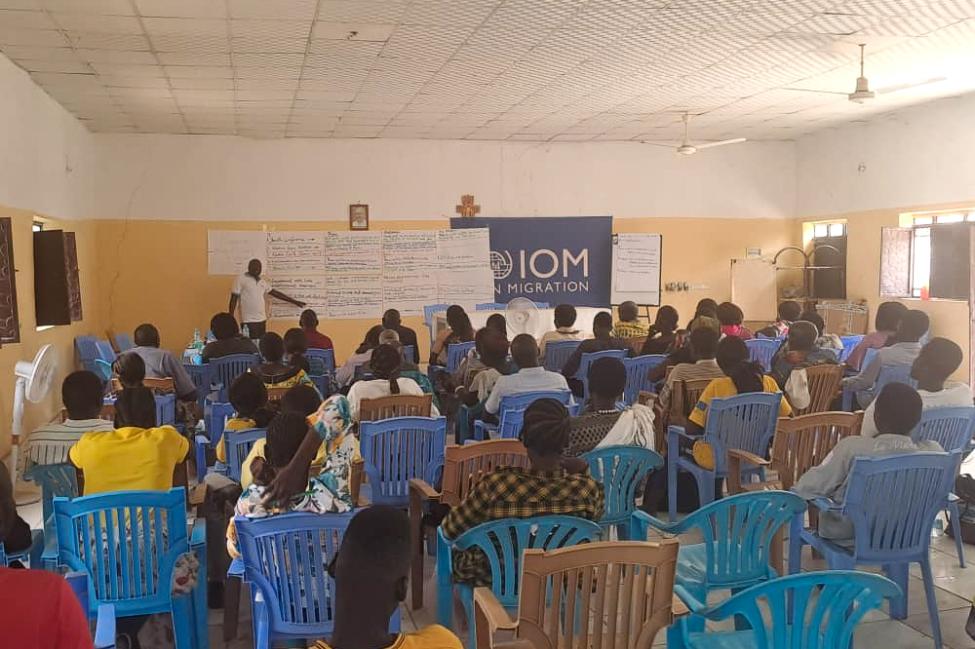-
Who We Are
WHO WE AREThe International Organization for Migration (IOM) is part of the United Nations System as the leading inter-governmental organization promoting since 1951 humane and orderly migration for the benefit of all, with 175 member states and a presence in over 100 countries. IOM has had a presence in South Sudan since 2011.
About
About
IOM Global
IOM Global
-
Our Work
Our WorkAs the leading inter-governmental organization promoting humane and orderly migration, IOM plays a key role to support the achievement of the 2030 Agenda through different areas of intervention that connect both humanitarian assistance and sustainable development. IOM South Sudan provides a comprehensive response to the humanitarian needs of migrants, internally displaced persons, returnees and host communities.
Cross-cutting (Global)
Cross-cutting (Global)
- Data and Resources
- Take Action
- 2030 Agenda
Malakal, South Sudan -The International Organization for Migration (IOM) supported a three-day workshop for the first ever Peacebuilding Roadmap and Action Plan Development in Malakal, Upper Nile State. This came following a request by the State Ministry of Peacebuilding to form a strategic and practical guide to the government and peace actors.
The workshop brought together different Peace Actors and 73 participants men and women from different communities of Upper Nile State including the community in POC, including civil society organizations, youth, persons with disabilities, returnees, and internally displaced persons (IDPs).
“Now that IOM has offered us this opportunity to deliberate on the peacebuilding priorities, I am confident that Malakal is going to shine soon. We are going to restore the love, unity, and intermarriage we used to have here in Malakal those days. Let us return to this life.”
said Mama Nyaw Arop, Chairlady of Upper Nile Women Association.
Participants identified fourteen pathways to advance peacebuilding priorities and achieve sustained peace and development. These include improving access to education services, raising awareness among communities, and disseminating peace messages, raising awareness on climate change and its effects on peace and security, promoting inter-generational dialogue to build understanding between young and old and ensuring peaceful disarmament. Participants deliberated on these identified priorities and ranked them in a descending order based on the prominence of each priority.
“We should all respect this roadmap and action plan for peacebuilding and implement the priorities identified by the communities and peace actors. This roadmap is our compass, directing us to peace. It will show us the way and we will never get lost again.” Noted Hon. Jeremiah Deng Akol, the State Minister of Peacebuilding in his closing remarks at the workshop.
IOM and other peace partners have been conducting a series of dialogues with different community members in Malakal town and the Protection of Civilian (PoC) Site. These dialogues resulted in the community identifying key priority areas of actions to promote peacebuilding in the area. The priority areas have been developed into a Peacebuilding Roadmaps and a concrete Action Plans, with a division of responsibilities and timeline for implementation.
“Developing this Roadmap and Action plan is not enough; we must commit to make this plan work. IOM will continue to support the implementation of this roadmap” said Arshad Khan, IOM South Sudan’s Head of Sub-office in Upper Nile State.
This initiative is implemented under the “Local Solutions to Build Climate Resilience and Advance Peace and Stability” Project, Generously Funded by the UN Secretary General’s Peacebuilding Fund

